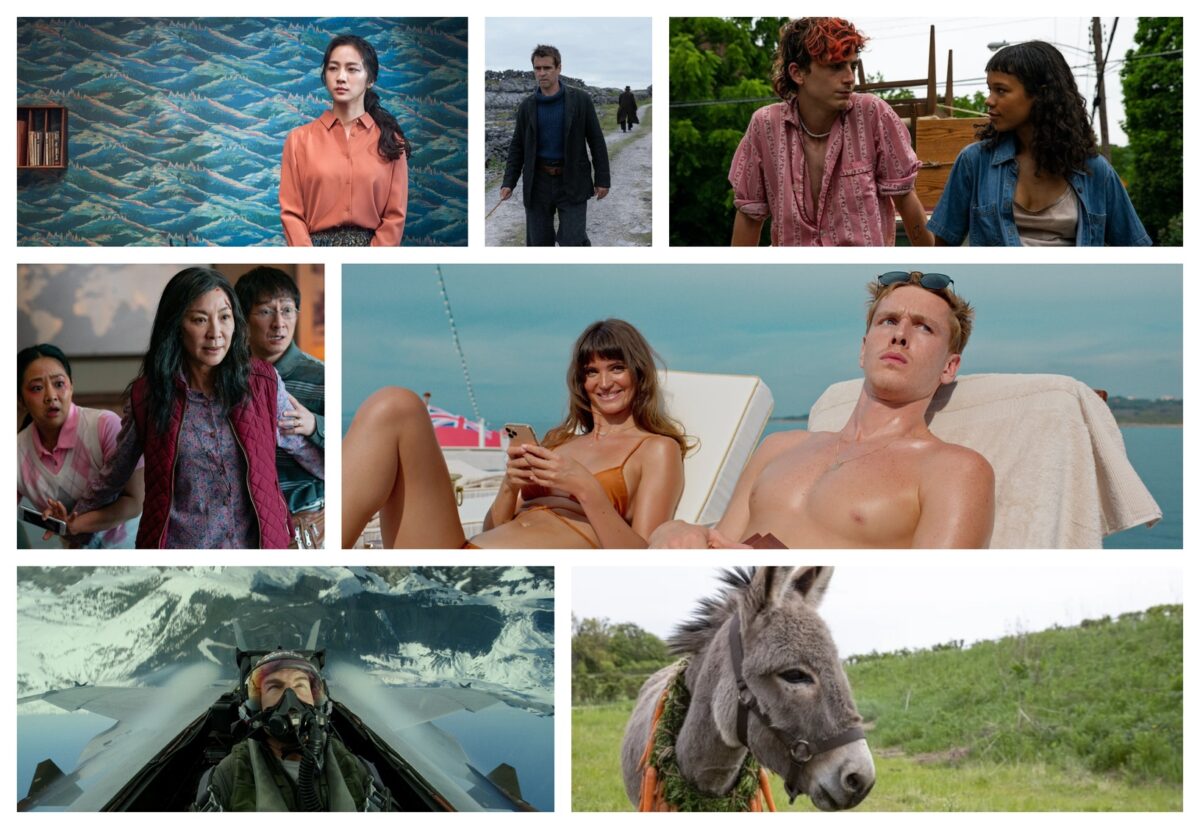Avatar 2 grosses a billion dollars in two weeks, Top Gun: Maverick resuscitates the summer blockbuster, Glass Onion spends a week in theaters after Netflix spent nearly half a billion dollars on it, the Will Smith Oscar slap heard around the world, and, maybe, the first best film of this new decade. A lot happened in the world of film this year. Were we disappointed in how Black Adam took up 90% of screens across the country? Of course. But were we disappointed in how Twitter gaslit Sony into re-releasing Morbius theatrically only to lose more money? Not one bit. 2022 has been another indication of a shifting of the tide, a balancing act where headlines boasted “10.8 billion hours streamed” instead of “33 million dollars in its first week.” It’s nothing new, but we think that these outlets of exhibition are becoming less of a “do or die” situation, and more of a marketing tool that plays into the theatrical experience as a whole. Maybe in 2023, they’ll be two sides of a coin that can’t exist without the other. Here are the 10 best movies of 2022.
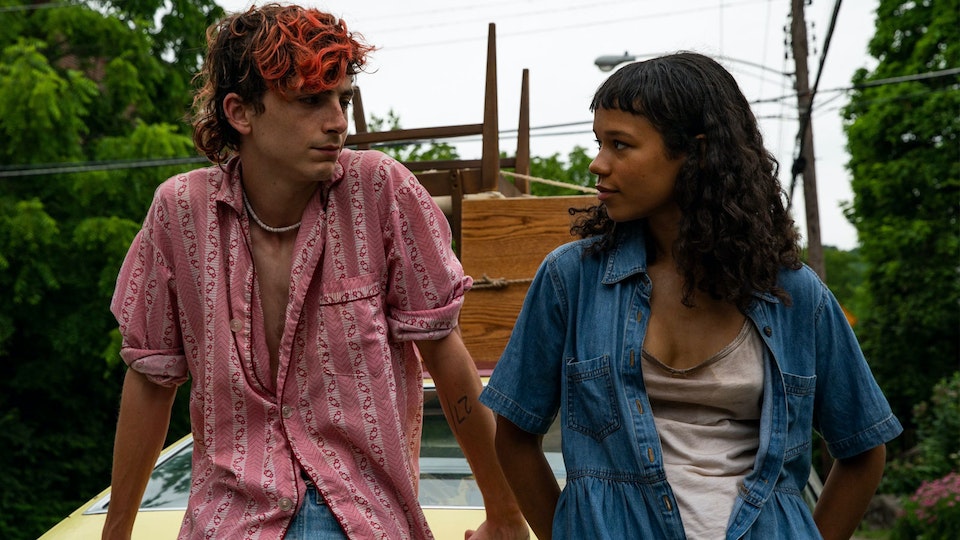
10. BONES AND ALL
Premiering two films this year as the man who never seems to stop working, Luca Guadagnino reunites with Timothée Chalamet for a different kind of romance film. Reminiscent of Terrence Malick’s Badlands, Bones and All lends itself best in its outlaw-ish-ness, starring up and comer Taylor Russell as a drifter with innate cannibalistic tendencies who’s constantly on the run, forced to repress her true desires. Featuring probably Nine Inch Nails’ most romantic, gentle score yet, Bones and All blurs the line between being madly in love and having no choice but to squander, which, at its heart, is about stripping away identity; tearing away all the politics on the surface to fall in love with someone’s dirtiest flaws, bones and all.
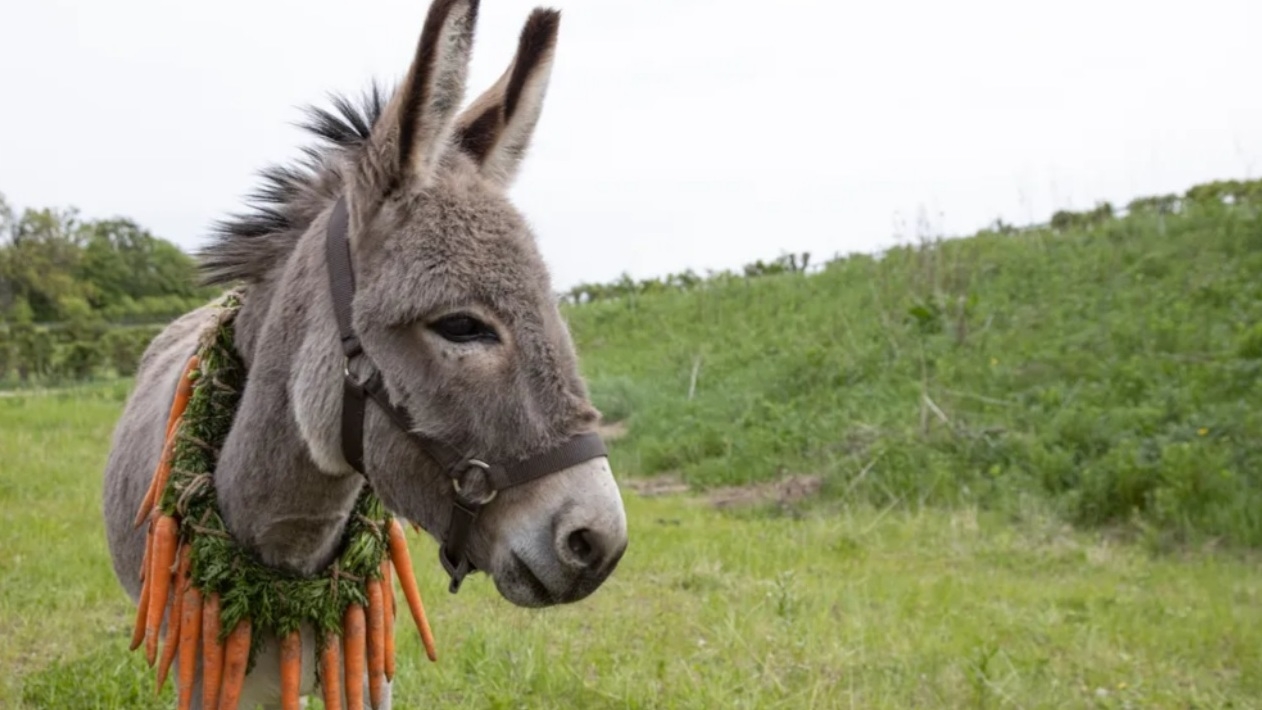
9. EO
How does one make a movie about a donkey? And how does one make it interesting? EO defies all expectations. One would think it’d be a sweet animal film, but the result is a surrealist exploration of how the animal kingdom is truly at the mercy of humans. Following a stray donkey named Eo as it makes its way across Europe, the film’s POV constantly switches. From Eo’s perspective, we see the dangers of the world seeped in red in a very impressionistic way: drone shots, strobe lights, lasers, heavy synth score, all told in a 1.33:1 aspect ratio. It’s a story of an animal seeking agency, while seeing the beauty and evils of a world for the first time, urging the viewer to rethink about how humans interact with other ecosystems.
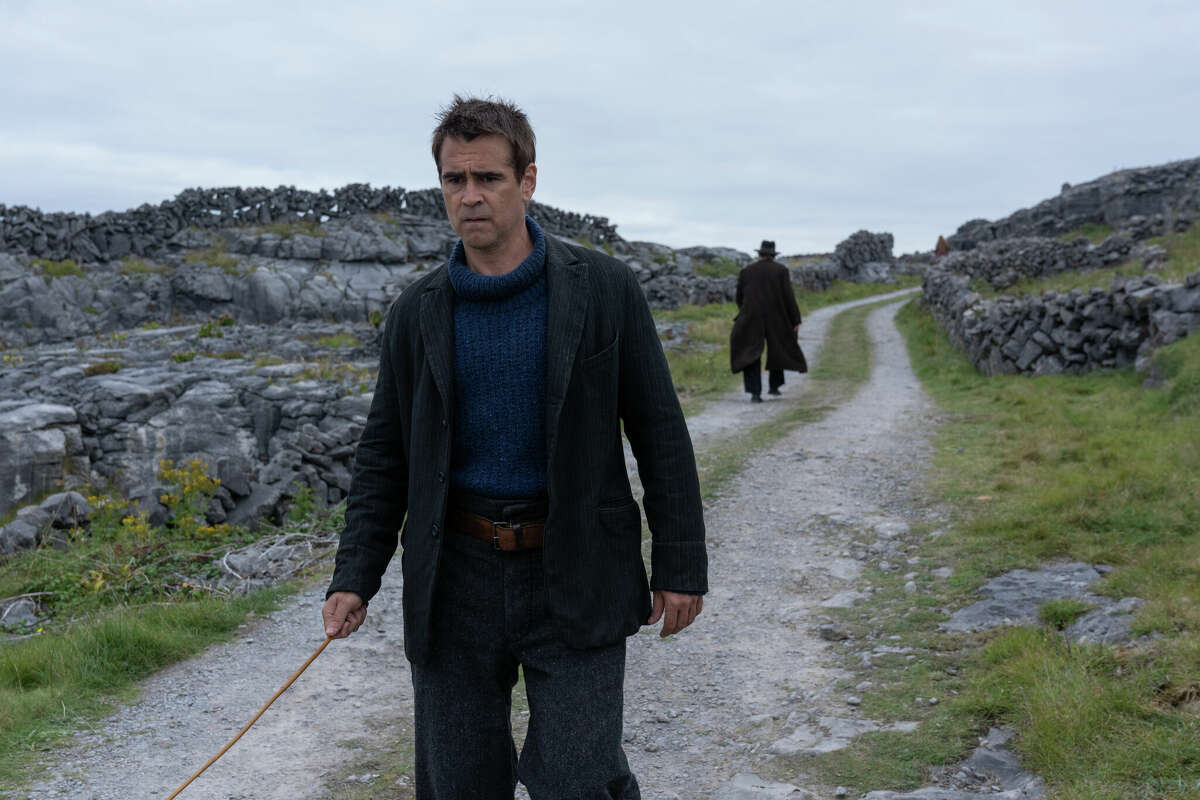
8. BANSHEES OF INISHERIN
Is there any director that’s more of an “actor’s” director (besides PTA, of course) than Martin McDonagh? For twenty years now he’s been writing esoteric, imperfect, genuine characters for the actor, trusting them enough to direct themselves from the page. Banshees is perhaps the pinnacle of his approach. Centered around a stagnant farmer, Padraic (Colin Farrell), who is content with his abysmal life and feels no need to pursue higher reaches, the film follows him as one by one, the ones closest to him chose to leave his life. The dry-wit and dark humor shine through here more so than his previous films, but the main theme here is loneliness. Plotted against a backdrop of a very small island, every character seems to be in the background of every scene, proving that every human needs another human to survive, to discover themselves vis-a-vie one another.
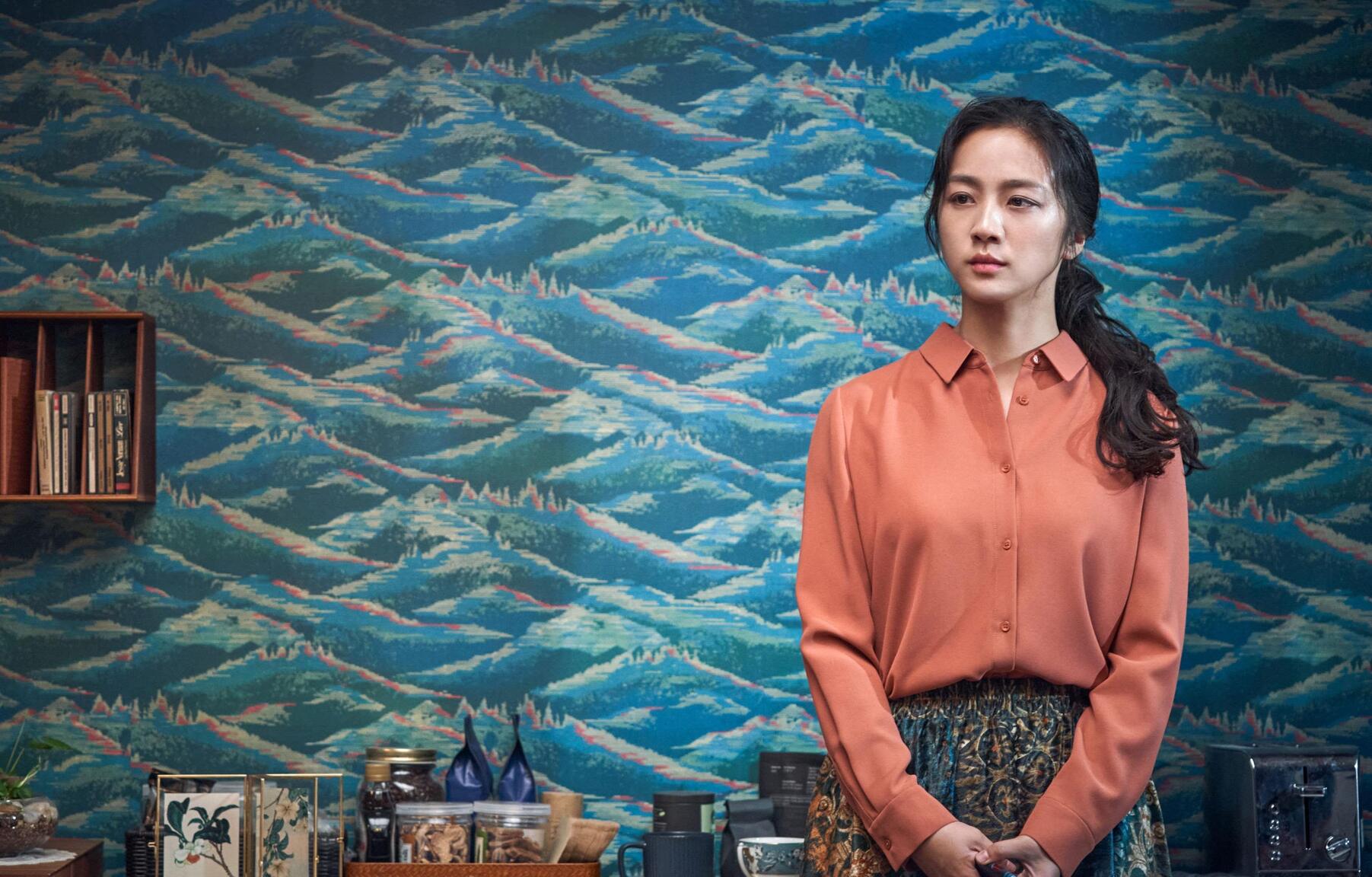
7. DECISION TO LEAVE
Part police procedural, part romance, Decision to Leave brings Park Chan Wook back to the international awards stage. When a police detective becomes romantically involved with a murder suspect who has a history of leaving her partners in the most auspicious ways, he soon becomes dead-set on making sure this murder is never solved. The film begs the question: how are we to maintain a relationship if what binds us together only lies in the unresolved past, constantly tethered to us? And what happens to us when that tie is mended? As futile as his goals are, the film builds to a deeply ironic, yet deeply tragic climax that only the keenest of audiences will be able to foreshadow, which only grows with more fascination as it sits with you.
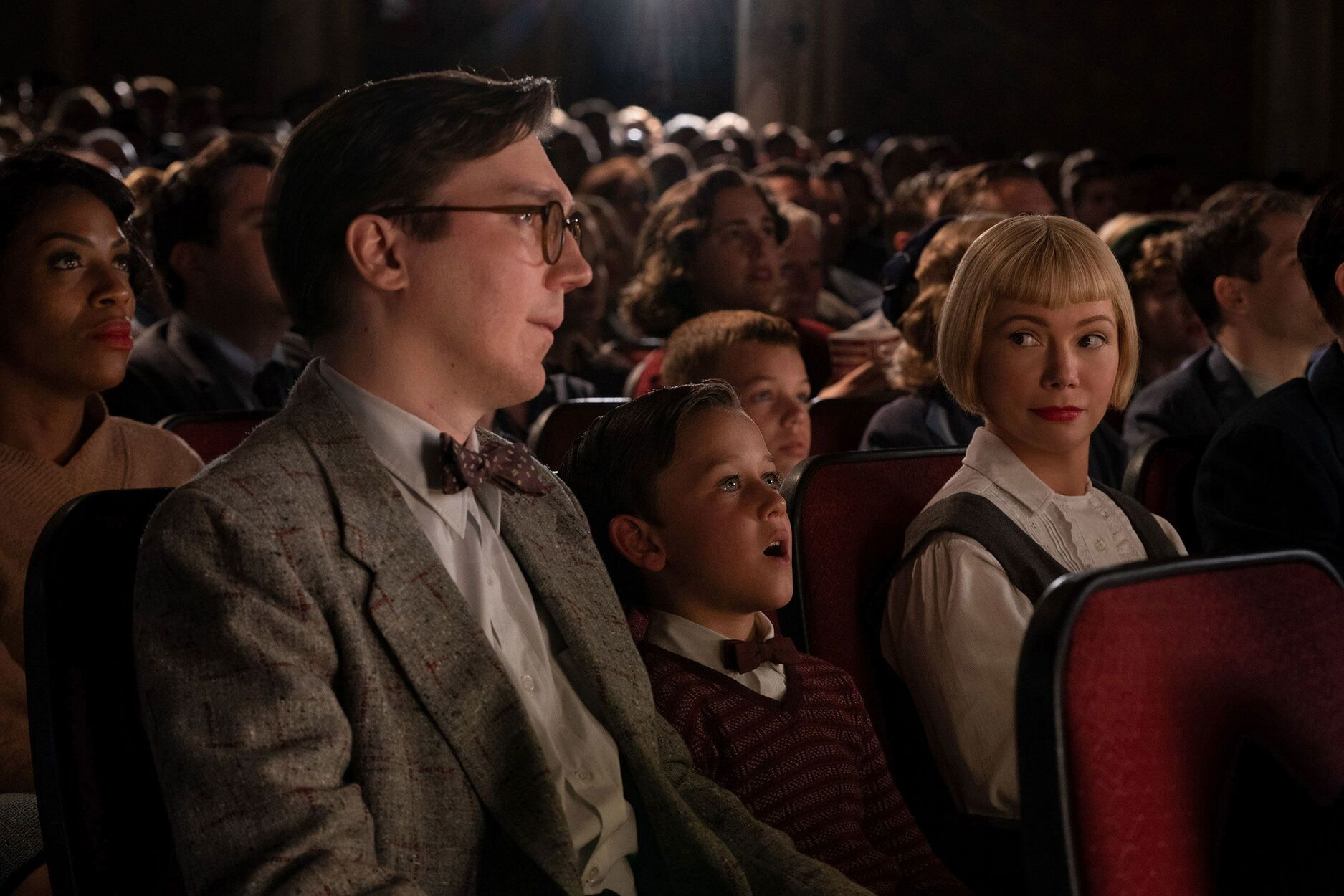
6. THE FABELMANS
Of course it wouldn’t be award season without some sort of Spielberg effort in contest. It’s hard not to like The Fabelmans, Spielberg’s semi-autographical account of how he fell in love with filmmaking. Full of awards-bait and wit, The Fabelmans runs a tad 15 minutes longer than need be, but damn is it charming. Showcasing career defining performances from Michelle Williams, Paul Dano, and even David Lynch, the film dives into adolescent doubt, and highlights how one constantly reinvents their relationship with their craft.

5. TRIANGLE OF SADNESS
With probably the funniest set pieces this year, Triangle of Sadness sets up Ruben Östlund as perhaps the best satirist filmmaker working today, and boy does he love to see the proletariat suffer. Östlund’s humor here is a little more surface level than that of his previous work, more accessible. His critique on modern economic inequality makes for some of the most comedic sequences this year, as Triangle follows the upper echelon of the rich and wealthy on an exclusive yacht cruise whose crew is so dedicated, they’ll go to great lengths to satisfy their guests needs. What follows is perhaps the best compilation of comedic moments all wrapped into one film. Some will be frustrated by watching it, but if you’re a fan of the most awkward and uncomfortable scenes in film, you will LOVE this movie.
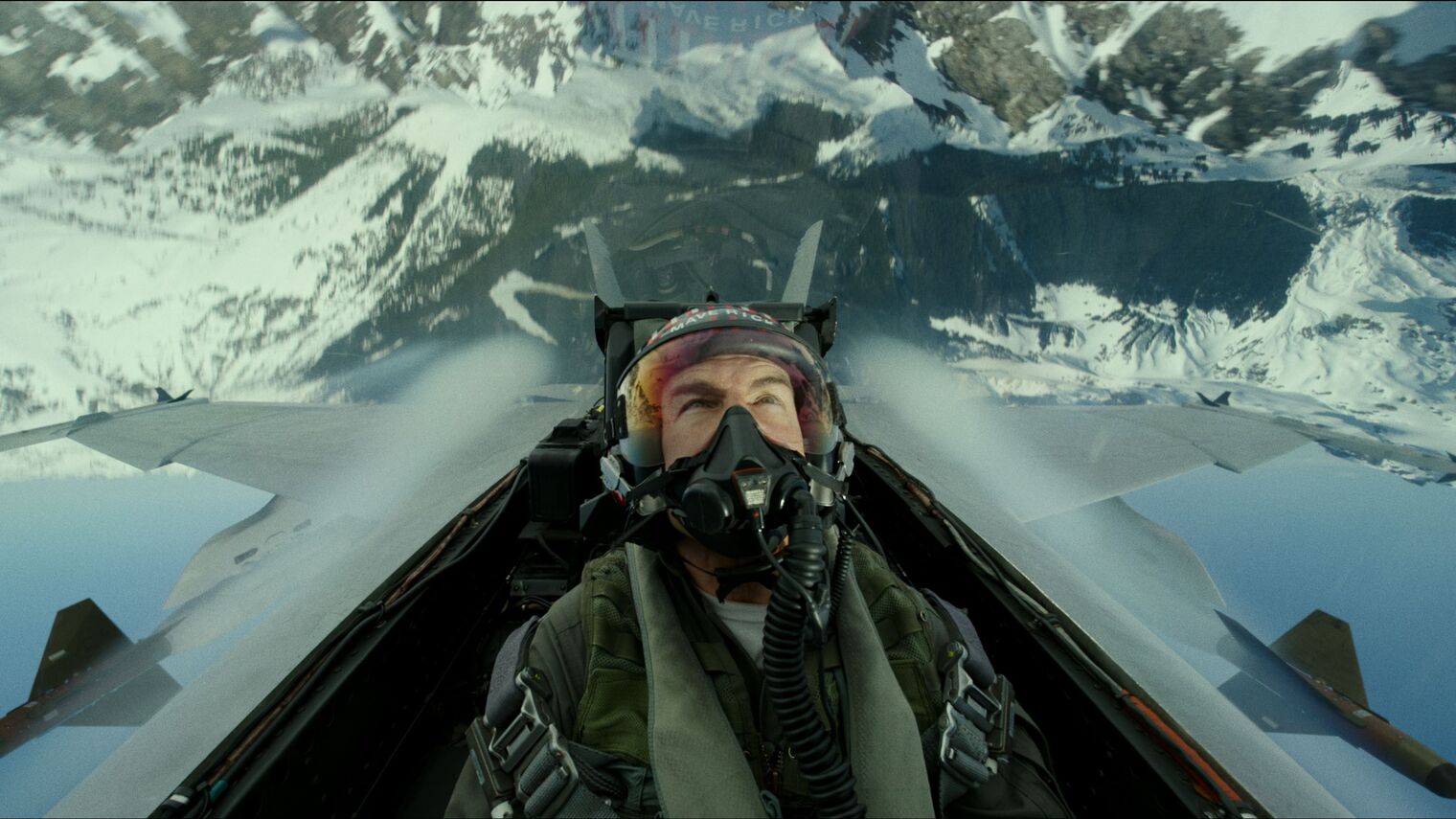
4. TOP GUN: MAVERICK
Having been indefinitely pushed due to the pandemic, Top Gun: Maverick finally made its way to theaters this year. While giving both domestic and worldwide box offices a jolt of resuscitation, it also brought back a moment of reminiscence with a big-budget summer blockbuster, the kind we haven’t seen since 2019. But aside from being a popcorn, eye-candy flick, it’s also a masterclass in writing for the screen. All one needs to watch is the opening sequence to know that we’re dealing with a flawed, but ambitious character. Gone are the days when you can still discern some glimmer of a human story within an inflated, overwhelming budget. But Top Gun: Maverick reintroduced the idea that a big-budget blockbuster can still be a critical darling as well.
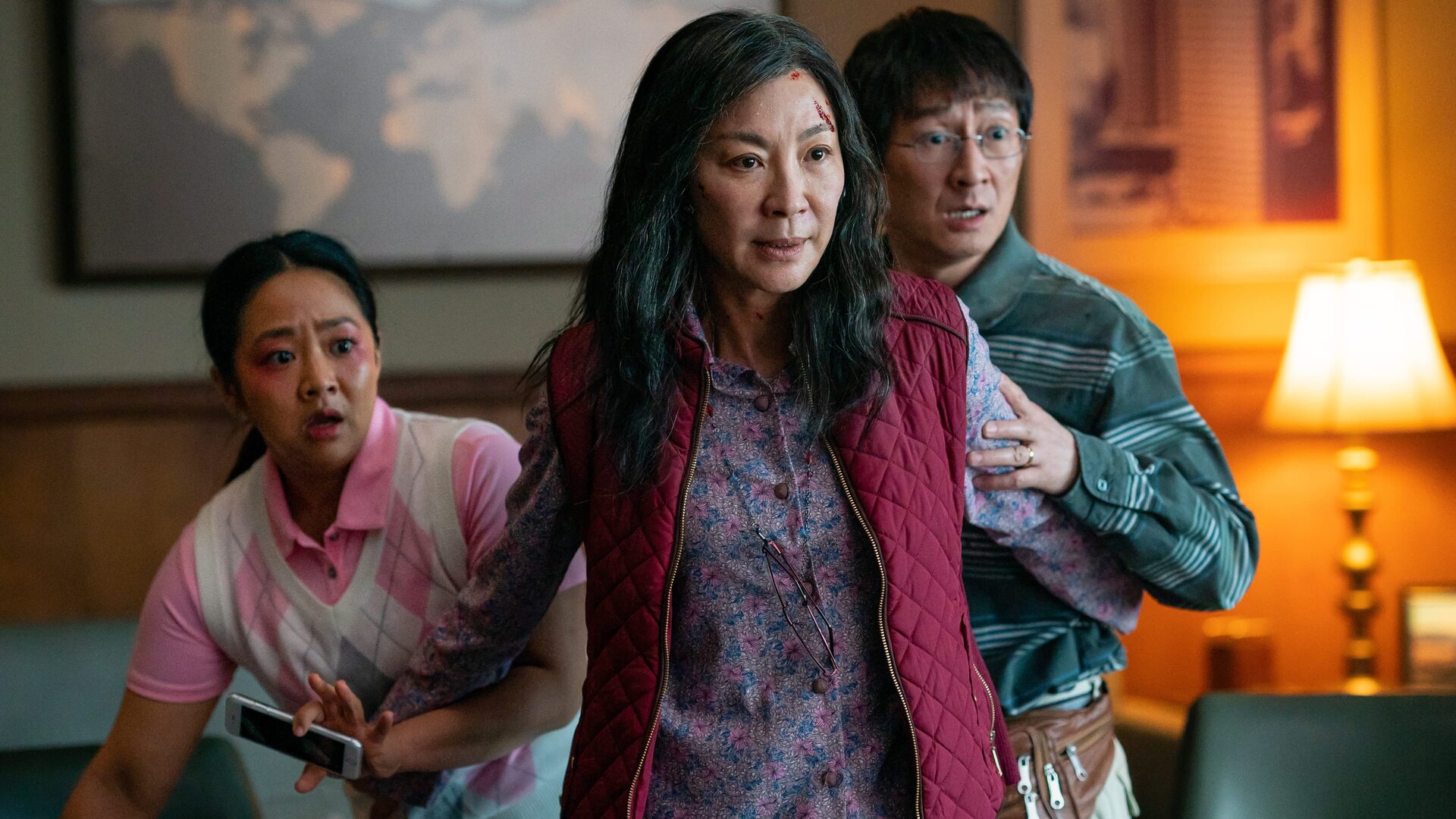
3. EVERYTHING EVERYWHERE ALL AT ONCE
If there was a common, overlying theme in film and TV this year, besides donkeys, it would be the multi-verse. Touched upon by Dr. Strange and Russian Doll, Everything Everywhere All At Once used the thematic element to touch upon people’s hearts. Whereas other films used it as a cinematic thrill and gimmick, EEAAO used it as a way to discover the best version of yourself. What first begins as a film about intolerance in our lead of Michelle Yeoh, the film uses the gimmick as a vessel to explore what your life could become, or could’ve been like. Coming off 2016’s Swiss Army Man, the DANIELS became the directors that shot straight to our hearts with a most endearing message, reminding us what we’re capable of when we keep an open mind.
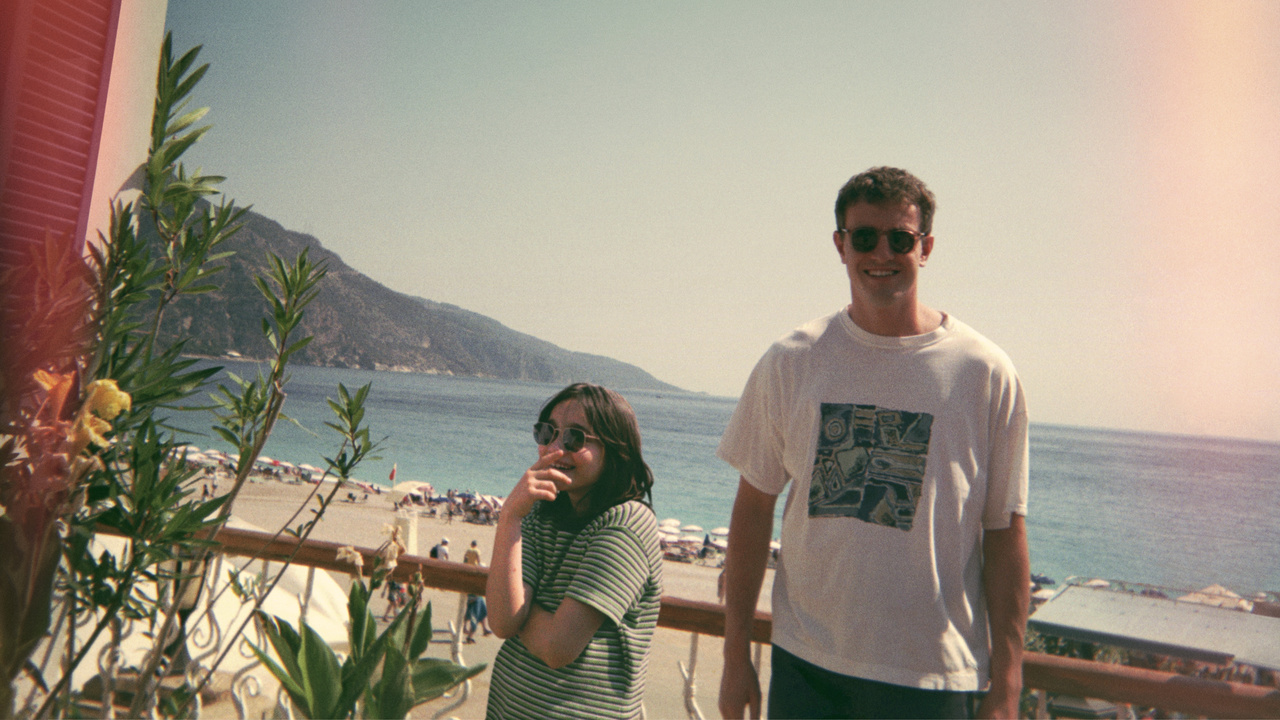
2. AFTERSUN
It’s okay, you can cry. It’s okay to cry. But don’t let me be the one to convince you. Let this film do it instead. I won’t bore you with details; trying to tell you what this movie’s “about” will just sound like homework. I can tell you this though: this movie will mean a lot of things to many people. Just go on the film’s letterboxd page and scroll through the disparate reviews varying from a half star rating to “masterpiece.” I can’t exactly tell you what it means to me either, but I think I can approximate to you how I felt.
We will never truly know our parents. We will never be able to fully comprehend the fact that they were just like us at one time: an autonomous body free to do whatever they pleased, a human being with agency, far from the responsibility of parenthood, still discovering who they’re meant to be before caring for new life became their priority. They had dreams too once: goals, ambitions, heroes, struggles, other lovers…
So go ahead, it’s okay to cry. Because life is like sitting backwards on a moving train: you can only see what’s behind you, you can only see the past. I’m not going to be the one to tell you to see this movie, because frankly, I don’t care if you choose not to see it. This is a film that exists outside of itself. You’ll keep waiting for the “ta-da” moment, but it will never come, because the film is about the “thing” that already happened, a place you get stuck in, a pain you can’t erase.
So, what did this movie make me feel? The desire to become a better person in THIS present time, the time happening right before me. So, call your mothers, call your fathers, call your sisters, and reconcile while you can, because soon they’ll only be memories you sift through, and you’ll be left wondering why you never got to know them better.
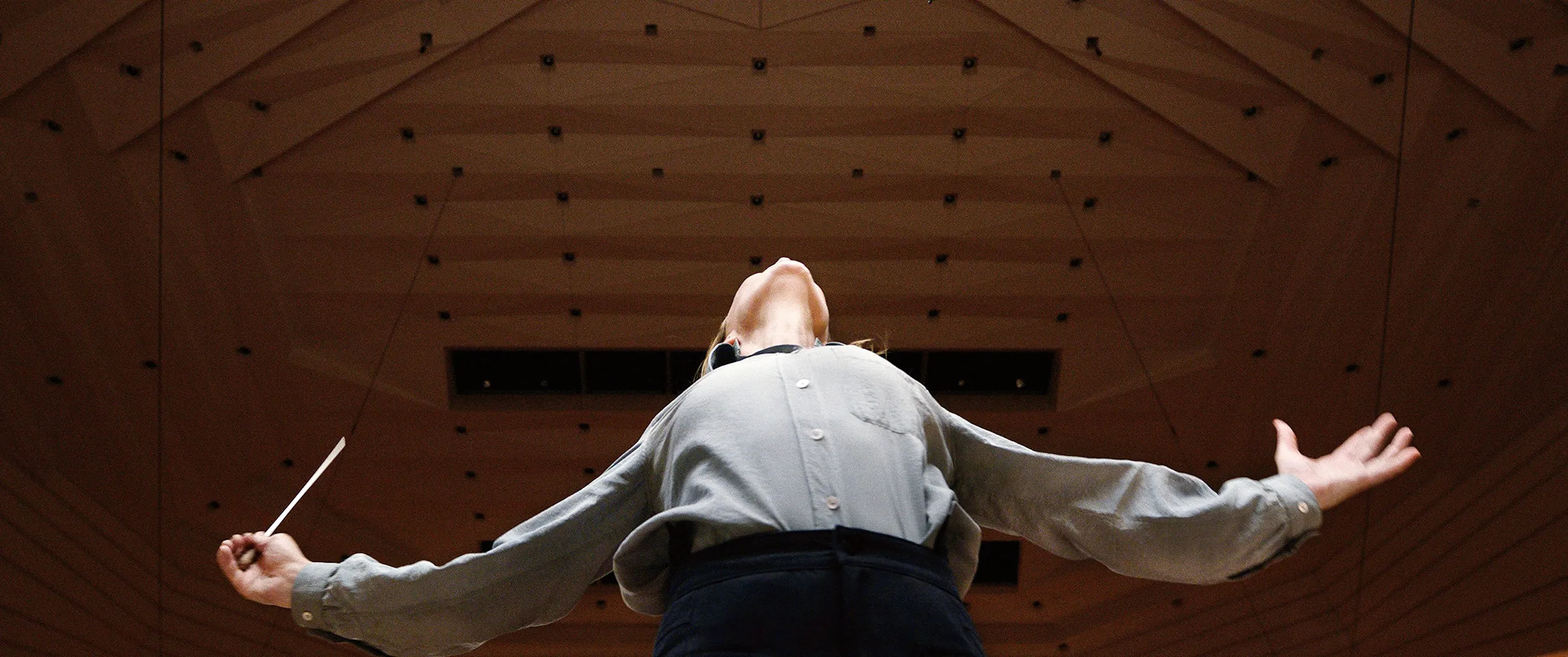
1. TÁR
Imagine having directed only three films your entire career and all of them were A+ films – not only incredibly watchable, but films that leave you baffled by how they just tower over you, how they paint their protagonists as larger than life. In the ballsiest performance of the year, Cate Blanchett plays Lydia Tár, a well-esteemed classical composer who’s performed and achieved just about anything a composer could do in the classical world, who’s thrusted into a world of accusations by one of her former pupils. After having gone into the movie convinced Tár was a real person (thanks Twitter), this writer even left the theater still fully convinced Tár was a real person. It wasn’t until a week later when we discovered she actually isn’t. But y’know what? The film’s better that way. One could argue that Tár is the best biopic of the year, because it feels like and was shot like a biopic. Even the film’s first scene feels like an organic conversational interview that just seems so real, you believe Blanchett’s playing a real person. And that’s what the best kind of cinema can do: paint a vivid portrait of a deeply flawed, real character, and surround them with a cast in hopes they’ll be pushed to becoming a better person.
One could argue that this is a film centered around “cancel culture,” but that’s merely the venue the film takes place in. In this writer’s humble opinion, this film is about the past. And we’re not talking about history or historical events, but it’s about past-ness, the tense of being past, and it appears in the various interpretations of this film: references to the role Judaism and antisemitism played in the history of music, Gustav Mahler’s troubled history of manipulative behavior, the denazification of the classical music world, and above all, the buried history of the film’s lead. We fear the worst when we believe someone has a preconceived notion about us, convinced they see through our façade that we’ve worked so hard to build and perfect. A film disguised as a riddle, wrapped in a mystery, inside an enigma, Tár is a film of bottomless intrigue. We’ve seen reviews that have dubbed it “the first ‘best’ film of this new decade,” but only time will be able to make that judgement. But here’s one takeaway that we’re dead-set on: like Darth Vader, like Daniel Plainview, like Hannibal Lecter, the character of Lydia Tár will forever haunt the history of cinema.
